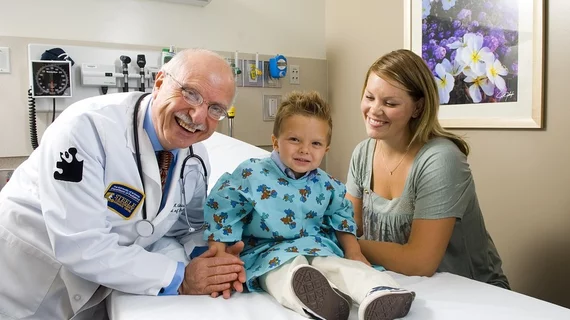Cardiologists push back on FDA’s thyroid monitoring/contrast media proposal
The Society for Cardiovascular Angiography and Interventions (SCAI) has responded to the U.S. Food and Drug Administration’s (FDA’s) recommendation that all infants and young children who receive iodinated contrast media (ICM) undergo thyroid testing. The group pushed back against this proposal, emphasizing that implementation would have “far-reaching consequences.”
“ICM is routinely used across many pediatric subspecialties, including interventional radiology, diagnostic radiology, pediatric surgery, and pediatric cardiology,” SCAI wrote. “Nearly half of cardiac catheterization procedures are performed in children less than three years of age. The burden of pre-procedural thyroid screening and post-exposure surveillance for patients and providers has not been assessed and would require significant resources and coordination.”
The FDA recommendation, shared in March in the form of a Drug Safety Communication, stated that any children younger than 3 years old who receive ICM face a heightened risk of hypothyroidism. This determination was based on data from 11 different studies published from 1987 to 2020. The SCAI said one of its primary issues with the FDA proposal was the relevance and usefulness of these data.
“Most had small patient numbers, few included control groups, and additional sources of iodine exposure (e.g., topical application) were not accounted for,” according to the SCAI. “Not included in the cited literature are additional published studies, including a retrospective study using a control cohort and a prospective randomized controlled study involving preterm infants – neither of which found statistical differences in thyroid function between exposed and control cohorts.”
The group did emphasize that it supports “evidence-based patient management strategies for the utmost safety of our most vulnerable young patients.” The SCAI also agrees with the idea of limiting ICM among pediatric patients whenever possible, writing that collaborations between manufacturers, healthcare providers and the FDA are essential to better understand the topic.
“SCAI looks forward to collaborating with all key stakeholders to create appropriate recommendations for patient safety and clinical practice,” the group concluded.
Related Interventional Cardiology Content:
VIDEO: How the iodine contrast shortage is impacting interventional cath labs — Interview with Kirk Garratt, MD
Links to all the late-breaking structural heart studies at TVT 2022
Concerns about overuse of stress testing after PCI may be unwarranted

